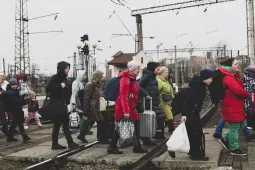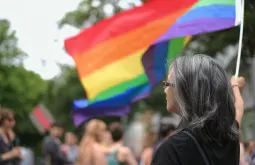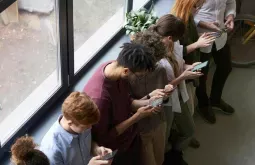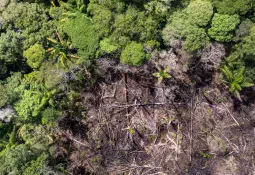Raperos of Cartagena
Plaza San Diego, Cartagena, on a serene afternoon, rain cleared, sun appearing through the clouds, cut by the music of hip hop from a cafe on the square.
Oye mi amiga, yo canto así / en esta vaina yo le meto pero eso son/ y mira que ahora yo le meto el vacilon/ oye mi amiga, bueno, lo estoy diciendo / mira que ustedes no me están escuchando / mira que ahora lo están revisando / en esta vaina yo le meto pero van / y mira que ahora cantan acaca.
Two teenage boys rap to a table of tourists. They take turns rhyming and passing a small toy boat between them. It’s their speaker, loaded with beats off of the internet. They slice the air with it as they punch their lyrics with heavy gestures, their shoulders bouncing, knees dipping. Patrons perturbed dart annoyed glances over their mojitos. But these boys are good. Their passion intense, their talent undeniable. Their sound is polished, professional, surprising coming from two young mouths. The patrons smile despite themselves, shoulders bouncing to the beat, eyebrows jumping at the cleverness of the lyrics. Doesn’t matter if they don’t understand the language, the rhymes are impressive regardless. The patrons laugh, repeat the phrases, express their surprise, and reach for their pesos.
Ferney and David a re both 16 years old. Ferney has been rapping in Cartagena’s walled city for four years, David for three. “I want to get ahead as a singer, I want to be famous, like so many other singers,” David says. “I want to be a singer, I want to help my family get ahead,” Ferney responds. He wears a green camo ballcap propped precariously high on his head, a pink t-shirt with the words Baila y Goza, dance and enjoy, in graffiti lettering on the front, and light cotton drop-crotch shorts, tight around the knees, baggy around the thighs. A large brass heart with barbed wire insides hangs around his neck on a thick gold chain. He appears so young, just a kid, but can make his face look hard, awash with an almost dangerous countenance, until he laughs and starts rapping, and becomes childlike again. It is hard to differentiate his speaking voice from his rapping voice, as both are quick and rhythmic. His tone is high-pitched, almost frenetic. David’s features, in contrast, are soft, the corners of his eyes upturned innocently. His voice is smooth and his rapping style slower, more deliberate than Ferney’s. He wears a black ball cap with a green rim, a black and white leopard-print tank top hanging low over black and white camp-print cargo shorts. His left shoulder is tattooed with an image of Mickey Mouse. They are both small and skinny, they don’t look their age, but when they stop talking about rap, the glimmer drains out of their eyes as they begin describing where they come from.
They are two of a group of eight to ten kids from Cartagena’s toughest neighborhoods, Olaya Errera, who come to the city center to rap. “We live by CAI Arrocera,” they specify, naming their local police station. Ferney was introduced to the trade by a guy named Dewan, who was one of the first kids from their neighborhood to start rapping for tourists. Dewan was killed, shot in the ribs by his stepbrother after an argument about who had the best swag. “No, no, Tony was the first,” David says, “but he’s not around anymore either.” “He made some records, and must be traveling somewhere,” Ferney says. Then he grabs his hat, turns it backwards, and starts dipping his fingers in the air, in rhythm with the song coming from the television above the restaurant door. A music video with a bald, latin singer wearing expensive sunglasses in the desert with a beautiful woman in a slinky gown hanging on his shoulder. “I’m going to be like him,” Ferney says. They rap in the walled city, in Boca Grande and along the beach. They work for two hours, four hours, eight hours, sometimes twelve hours, “until we have enough money,” David says. “That can be $50,000 pesos, or $40,000. Whatever God sends, we accept.” And then, with a sudden serious he adds, “tengo un hijo”. I have a son. “I come here to work so that I can buy the things the kid needs,” he explains. They don’t go to school; they rap instead. This is their job.






